An avoidant feels instant regret when you mirror their emotional distance but with a twist.
And it’s that twist, no one talks about.
And to illustrate this point I’d like to play a game.
It’s called ‘Who’s Really in Control?’ I’m going to ask you three quick questions, and I want you to answer in your head.
Ready?
Question 1: When an avoidant partner pulls away, who usually feels like they’re in control of the relationship?
- It’s the avoidant, right? They create distance, and you feel like you’re left waiting.
Alright, here’s question number two.
Question 2: When you match their emotional distance, does that put you back in control?
- Not really. It’s more of a stalemate, with both sides drifting apart, waiting for the other to make a move.
Question 3: Now here’s the twist—what happens if you become unavailable first, before they even get the chance to pull away?
- It flips the script completely. That’s when regret kicks in for them, because they never saw it coming, and they lose the power to distance themselves on their terms.
Let me show you how a typical breakup with an avoidant goes.
This is my world famous “Avoidant Death Wheel.”
It basically charts the entire avoidant experience in a relationship from beginning to end.
There are eight (8) stages to it:
- They want someone to love them
- They found someone and their troubles are over.
- The get triggered
- They start thinking of leaving
- They actually leave
- They’re so happy they left
- They start to feel lonely
- They feel sorry for themselves and wonder why they can’t ever find the right person.
And the avoidant goes through these eight (8) stages time and time again. It’s an endless, inescapable cycle for them.
But here’s something I don’t usually talk about. At every point throughout this death wheel, they are in control.
They are choosing when to leave, they are choosing when to push you away, and they are choosing when to let you back in—always on their terms.
In other words, they are active participants that propel the death wheel forward.
Of course, I rarely talk about this but it turns out their victims have a death wheel of their own.
This is what I like to call, the “Anxious Death Wheel”.

What Are Your Chances of Getting Your Ex Boyfriend Back?
Take the quizLike the Avoidant Death Wheel one, there are eight (8) stages to it:
- The anxious person wants someone to love them
- They find someone
- They decide they’ll make that entire person their focus
- They begin to sense that their partner is pulling away
- They are broken up with
- They decide they’ll do everything in their power to win this person back
- It doesn’t go so well and they feel alone
- They wonder if they’ll even find the right person for them
And just like the avoidant one, the anxious/victim of the avoidant gets caught in this loop, time and time again.
- Unlike the avoidant, the anxious partner isn’t in control.
- At no point during this entire process are they actually focused on moving on, or healing themselves.
- Instead, they’re stuck in a cycle of reacting to the avoidant’s actions.
- Their entire world revolves around trying to win back someone who’s already emotionally distanced.
- Every attempt to close the gap just pushes the avoidant further away.
- And so, the anxious person stays trapped—repeating the same patterns, prolonging their own suffering, and never truly gaining control over their own emotional well-being.
- They wait for the avoidant to make the next move, believing that their happiness depends on the avoidant coming back.
And yet we know two things need to happen if you want an avoidant to feel instant regret:
- You have to mirror their emotional distance
- You have to do it in a way so that you become unavailable, before they even have a chance to
Alright, let’s just focus on the first thing for now.
Thing #1: Mirroring Their Emotional Distance
I’m not the first person to come up with this idea.
The idea of mirroring has been a long held psychological belief when it comes to attraction.
Check this out,
This is an excerpt from a Vice Article I stumbled across,
“In a 1999 study, psychologists defined mirroring (also known as “the chameleon effect”) as “nonconscious mimicry of the postures, mannerisms, facial expressions, and other behaviors of one’s interaction partners.” It’s long been touted as a strategy that Successful People can employ strategically to show their engagement during job interviews or at work, because research has shown that intentional mirroring can positively influence the way someone is perceived…”
It’s that last sentence that holds relevance here.
When you mirror an avoidant’s emotional distance, you’re not just matching their behavior; you’re subtly influencing how they perceive you.
Think of it like this. Let’s pull up the “Anxious Death Wheel.”
This is how many avoidants are expecting their partners to react.
Except you’re different.
Instead of appearing needy or desperate, you’re projecting the same emotional detachment they’re comfortable with.
This shift in perception changes the dynamic.
- By mirroring their withdrawal, you become more mysterious, more controlled, and ultimately more desirable in their eyes, because you’re no longer chasing them. You’re showing them that you can exist without needing their validation—and that’s where the power lies.
But there’s still something bugging me about this.

What Are Your Chances of Getting Your Ex Boyfriend Back?
Take the quizWhy?
Why does mirroring work on them? Is it because of the validation thing I just said?
No… there’s more to it than that.
When we talk about dismissive avoidants:
- We’re dealing with core wounds that are largely unconscious.
- From an early age, they learned to disconnect from their emotions as a survival mechanism.
- Often, dismissive avoidants grew up in environments where emotional needs were not consistently met.
- So they adapted by suppressing their feelings to avoid the pain of unmet expectations.
- Over time, this emotional suppression became second nature, and they learned to numb themselves to deeper emotional experiences—leading to wounds that exist below the surface, outside of their conscious awareness.
As adults, this pattern continues.
Rather than confront their emotions or feelings of vulnerability, dismissive avoidants will bury them further, leaving those core wounds unresolved and hidden.
Basically, they’ve spent their whole lives learning to suppress and repress their emotions.
So, when a relationship ends, they don’t consciously feel regret right away. Instead, they push it down, deep into their unconscious, avoiding the pain just like they avoid intimacy.
But here’s the catch— those unconscious wounds don’t stay buried forever.
Over time, when they feel safer, those emotions begin to surface. And that’s when the regret hits.
By mirroring their emotional distance, you’re unknowingly tapping into this process. You’re not just validating their need for space—you’re allowing them the time and safety to process what they’ve been avoiding.
Eventually, their unconscious wounds catch up with them, and the regret becomes unavoidable.
That’s why mirroring works—it speaks to their hidden, unprocessed feelings.
Ah but remember, the whole mirroring thing is only one part of the equation.
So we just covered, Thing #1: Mirroring their emotional distance
Next, we have to cover the twist.
Thing #2: You have to do it in a way so that you become unavailable before they even have a chance to.
I’d like to show you a comment I found on a breakup subreddit about “regret.”
“As an avoidant, i do regret. my fatal flaw is not realizing what i have until i lose it. its a very selfish and self sabotaging mindset to be in and im trying to shake it and work towards a more secure attachment style.”
Ok, keep that in mind.

What Are Your Chances of Getting Your Ex Boyfriend Back?
Take the quizNow I’d like to read you an excerpt from Attached,
“One of the consequences of devaluing your romantic relationship is that you often wake up long after the relationship has gone stale, having forgotten all those negative things that annoyed you about your partner, wondering what went wrong and reminiscing longingly about your long lost love.”
Let’s do one more.
This one is from the free avoidant resource, Free To Attach,
“Avoidants are free to long for an ex once that person is unavailable out of the relationship, and typically out of contact so they are untouched by actual engagement and their deactivation systems aren’t triggered, revealing their long-suppressed attachment and switching their operating attachment wound from the fear of engulfment to fear of abandonment.”
A little bit below that this quote is this one,
“An ex being truly unavailable may even produce a perverse enjoyment – they are at liberty to fully miss and think wistfully of them while it also confirms their self-belief people won’t stick around them (sometimes in relationships they may imagine their partner with another to trigger this).”
So, we have three resources all saying varying degrees of the same thing:
- We have an actual avoidant admitting that they don’t realize what they have until they lose it
- We have Attached saying, it’s not until the relationship has gone stale that they reminisce
- And we have Free To Attach saying, avoidants don’t allow themselves to long for you until you become unavailable
But there’s still something missing to my mind.
All of this tells us one thing: “Avoidants don’t start longing for you until they believe they’ve truly lost you.”
But here’s the catch—longing and regret are not the same thing.
- Longing, is about desire.
- Regret, on the other hand, involves an acknowledgment of loss and personal failure.
It’s the realization that their actions caused them to lose something they actually needed or valued. Avoidants can feel the pull of longing without fully processing regret.
So what’s the missing piece?
Well, that’s where my little twist comes into play.
“Remember, an Avoidant Feels Instant Regret When You Secretly Become Unavailable Before They Even Have a Chance To”
In other words:
- Regret, only happens when they are forced to confront the consequences of their detachment.
- When you become unavailable—before they even have a chance to pull away—they’re hit with an unexpected emotional reaction.
So, let’s go back to our Avoidant Death Wheel for a moment here.
For the avoidant, there are eight (8) stages, but like I said, they’re always the ones in control of the death wheel.
They’re always the ones pulling it forward, choosing when to leave, and when to emotionally detach.
But there’s a critical point in the cycle—Stages 6 and 7—where the avoidant starts to feel lonely and sorry for themselves.
It’s during these stages that their sense of control begins to falter. They expect that you’re still available, waiting in the wings, hoping for reconciliation.
After all, it’s what they’ve come to expect.
One look back at our Anxious Death Wheel proves that.
Now, here’s the twist.
If, during these stages, they suddenly realize that you’ve moved on quickly—faster than they anticipated—it disrupts their entire process.
- This triggers a wild emotional reaction.
- They’re no longer in control of the narrative.
- Instead of being the one who detached, they’re faced with the reality that you detached first.
- This unexpected shift causes them to panic, and it’s often when the seeds of regret are planted.
- They’re left wondering if they misjudged the situation and made a mistake.
And to prove this point I want to use real clips of people I’ve interviewed.
This is an interview I did with a woman named Lee. She got her dismissive avoidant ex back, but only after finding herself.
Check it out:
- Lee:
“Interestingly enough, the first time we actually talked on the phone was six months to the day of us breaking up.” - Chris Seiter:
“Interesting.” - Lee:
“That’s kind of interesting.” - Chris Seiter:
“Well, how were you feeling during it, though? So, obviously, you go through this period of no texts, no contact, and texting for a long period of time. But when you get to that phone call phase, how are you feeling? Do you still want him back at that point? Or are you just kind of like, “Okay, whatever happens, happens”?” - Lee:
“Well, and that’s it, like, I did the 45 days. And then after the two weeks, I was kind of like, “Okay, do I want him back?”” - Chris Seiter:
“Yep. That’s the secret sauce of everything.” - Lee:
“I’m a wonderful person, and there’s no way that a wonderful person is going to be single forever. So that was really it. That was when I knew I had to be willing to let him go and let go of the idea of what he was and who he was. Because if I maintained holding on to that idea of who he was and what he was, I don’t think we could have continued this second relationship.”
Lee’s story is a perfect example of the twist we’re talking about.
By the time she reached out to her ex, she had already gone through the process of letting him go—she had detached emotionally, before he even had the chance to realize it.
And that’s the key.
When Lee found herself and moved on, she unknowingly interrupted her ex, a dismissive avoidant’s cycle.
- Instead of waiting for him to come back, she made peace with the situation, and this is what triggered that emotional shift in her ex.
- He was no longer the one in control, and it forced him to confront the reality that he had misjudged her willingness to move on.
- This disruption is exactly what plants the seeds of regret in avoidants.
Remember, this isn’t just longing anymore; it’s the deep, unsettling feeling that they made a mistake.
They realize, often unconsciously, that their need for control and avoidance led them to lose something they didn’t know they needed, until it was too late.
The key aspect of everything I’m talking about today though is timing.
And that’s the part almost everyone gets wrong.
- If you misjudge the timing and wait too long, the avoidant doesn’t experience regret.
- They simply complete another revolution around their death wheel.
- They’ll move on, feeling justified in their decision to detach.
- That’s why it’s essential to ‘move on’ or ‘let go,’ before they do.
That’s what Lee did right. She let go and moved on before her ex had the chance to fully detach.
By the time they reconnected, she had already created emotional distance and was no longer holding onto the hope of getting him back.
I mean look at her exact words,
“I had to be willing to let him go and let go of the idea of what he was and who he was.”
This shift forced her ex to confront the reality that he was no longer in control of the situation, and that’s when the regret began to creep in.
Lee’s timing disrupted his usual cycle, planting the seeds of doubt and making him realize what he had lost—before he even knew he had lost it.
You have to make your exit before they even realize what’s happening. By doing so, you disrupt their cycle, and it’s that disruption that triggers regret.
If you wait until they’ve fully detached, the emotional window closes, and any chance of them realizing their mistake disappears.
Timing is everything here—knowing when to pull back can make the difference between them feeling longing versus true regret.
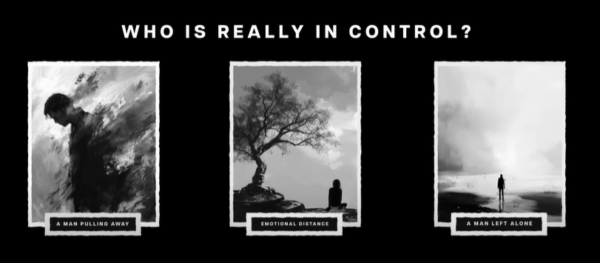
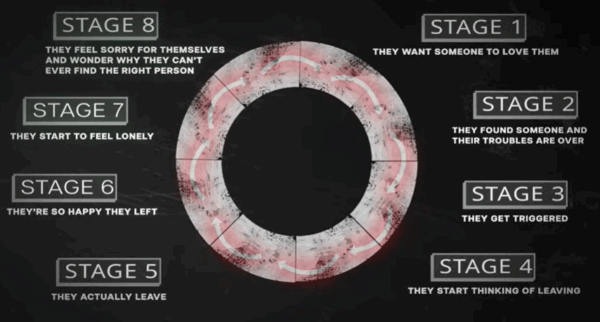
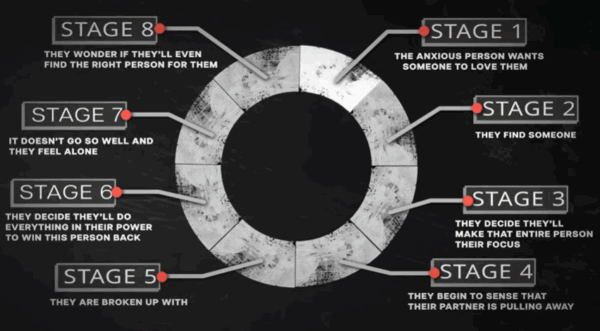



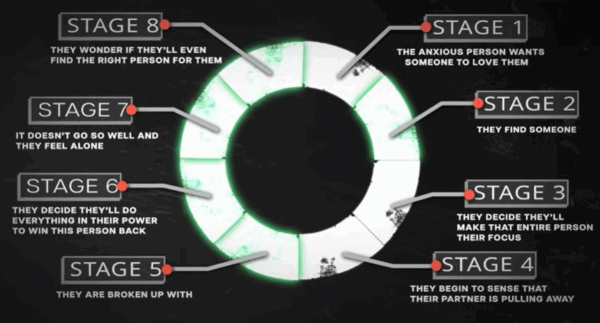
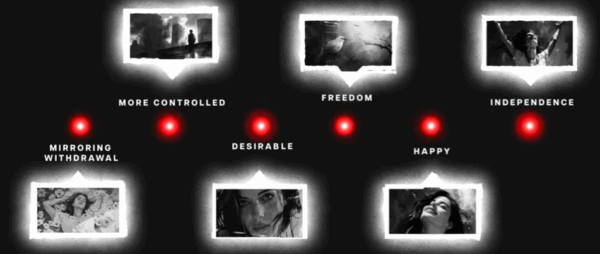

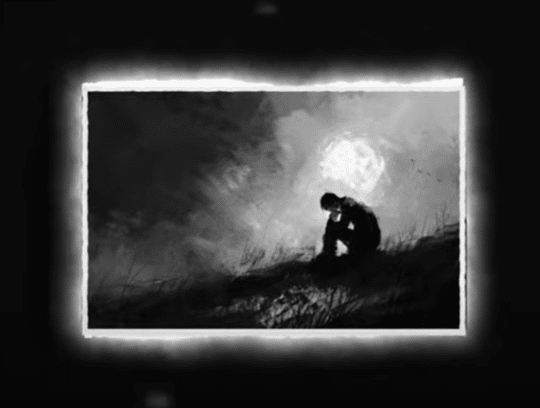

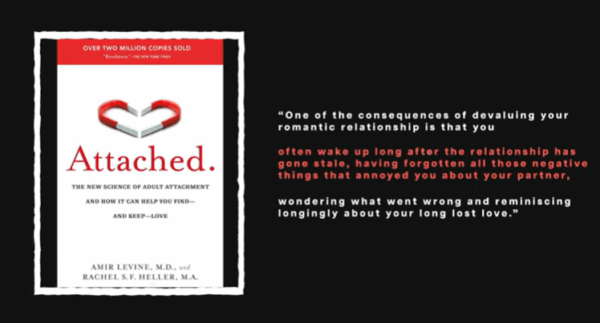
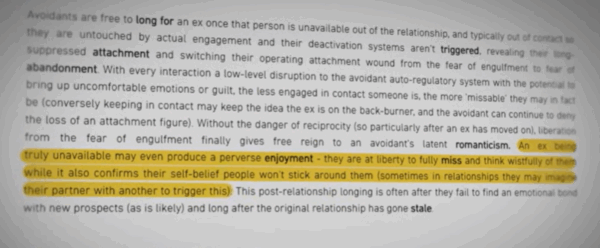
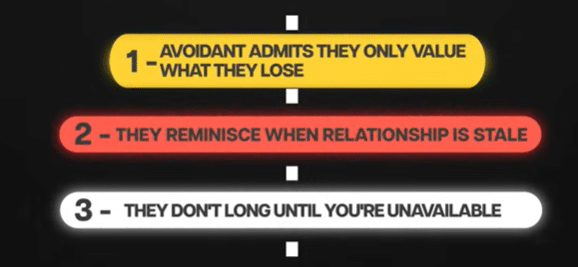
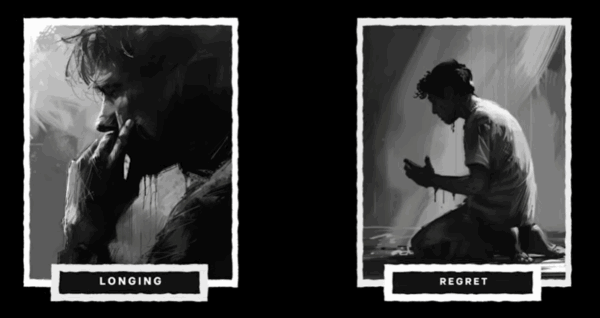
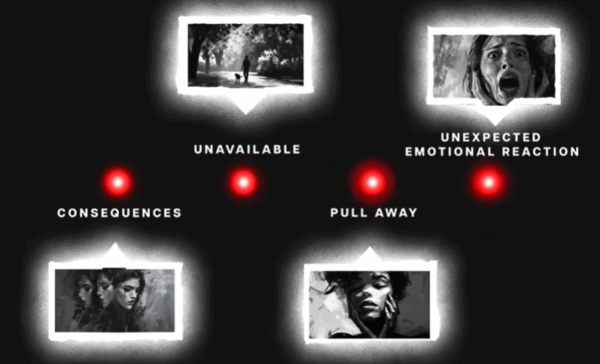
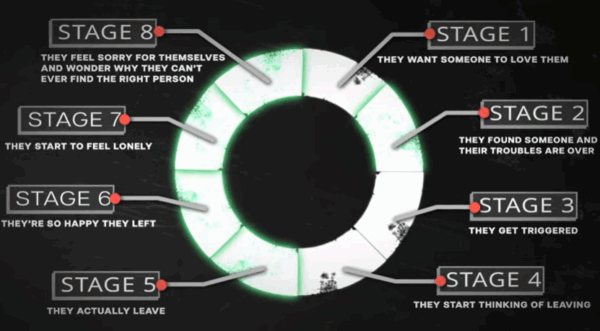
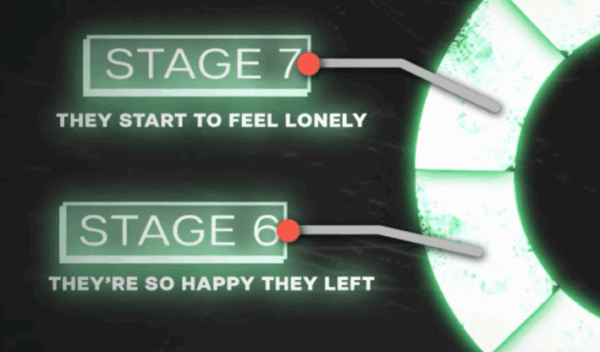

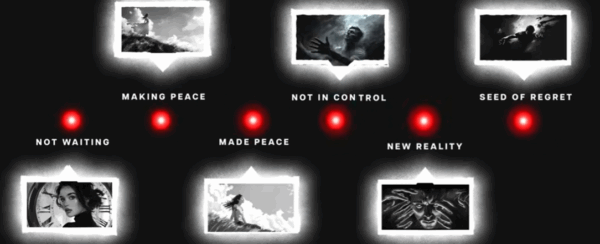
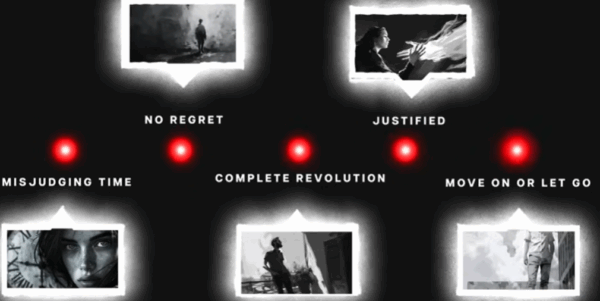
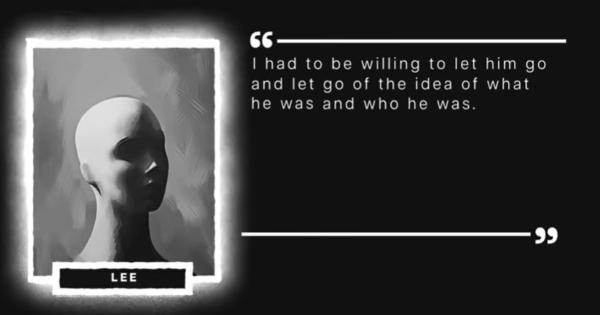
Aly
January 28, 2026 at 2:40 am
I am the phantom ex. We rekindled.after 6 yrs by accident. He didnt want a relationship. He prioritized everyone but me. I broke him off cold turkey. 2 months later we rekindled as friends but it was apparent he didnt treatment like his friends. When the disrespect came back, showing up for bro drama and not my legit needs, i was just done. Disgusted. I was not mean just stayed busy and closed access. By what i read this will be the point he steps up.but i can never trust him again and have zero oatience for his games
Julie
August 6, 2025 at 7:17 pm
I walked away in calm total silence. I did the Twist. But 15 days in I ran into him. He was defensive since he had just begun to process. I made sure he knew I was not interested in friendship and had always wanted more. I told him I was sorry he was still in fear from lies he tells himself. Then I walked away again. My energy came back into me fully both times. I am securely attached. I can move on but love doesn’t just die. Finding someone new isnt a guarantee. I didn’t date for 15 years and was happy. Now I feel disappointed I had the misfortune of connecting with a fearful avoidant. We are in our late 60s. My question is curiosity. Is there any success stories out there for avoidants or are 25% of single people a waste of time?